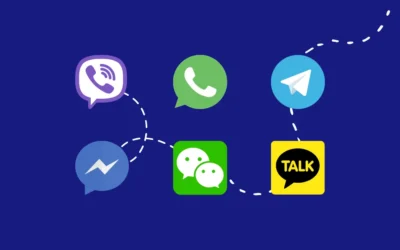In today’s digital age, user-generated reviews and recommendations play a pivotal role in shaping consumer behavior. With the rise of online platforms like Amazon, Yelp, TripAdvisor, and social media networks, consumers increasingly rely on feedback from fellow shoppers to make purchasing decisions. These reviews have transformed traditional advertising methods, providing a more authentic, peer-driven perspective on products and services. In fact, user-generated content has become a powerful marketing tool, influencing the way businesses engage with their audiences and how products are perceived.
1. Trust and Authenticity
One of the main reasons why user-generated reviews hold so much influence is trust. Consumers tend to trust reviews from fellow customers more than traditional advertisements. This is because reviews often come across as unbiased and more authentic. Users sharing their personal experiences help build trust, offering insights into product performance, quality, and customer service. The perceived credibility of peer reviews is a driving force behind consumer purchasing decisions.
2. Social Proof and FOMO (Fear of Missing Out)
User-generated content creates a sense of social proof, which makes consumers more likely to purchase a product that others have recommended. When a product has numerous positive reviews or is highly rated by users, it signals to potential buyers that it’s worth trying. This “FOMO” effect can prompt swift decisions, as consumers fear missing out on a popular or trending product.
3. Influence on Brand Reputation
Reviews can make or break a brand’s reputation. A collection of positive reviews can elevate a brand’s image, leading to higher sales and greater customer loyalty. Conversely, negative reviews or low ratings can harm a brand’s credibility, forcing companies to address customer concerns and improve their offerings. Managing reviews and responding to feedback has become crucial for businesses looking to maintain a strong online presence and reputation.
4. Personalization and Targeted Marketing
User-generated reviews also provide valuable insights into consumer preferences. Companies can analyze these reviews to better understand what customers like or dislike, allowing them to adjust their products, services, or marketing strategies accordingly. This data enables businesses to tailor their offerings to the specific needs and desires of their target market, creating more personalized experiences and boosting customer satisfaction.
5. The Power of Social Media Influencers
In the era of influencer marketing, user-generated recommendations from influencers or everyday customers on social media have a massive impact. Many consumers trust influencers, especially those they feel align with their values or interests, over traditional celebrity endorsements. Positive reviews and endorsements shared by influencers can sway buying behavior, especially when followers feel a strong connection with the influencer.
6. Real-Time Feedback and Engagement
User-generated reviews allow consumers to receive immediate feedback on products or services, which is particularly important in today’s fast-paced world. Whether it’s a restaurant review, a hotel recommendation, or a product rating, this real-time feedback influences purchasing decisions quickly. Moreover, businesses can interact with customers through reviews, showing they value feedback, addressing concerns, and building relationships with their audience.




